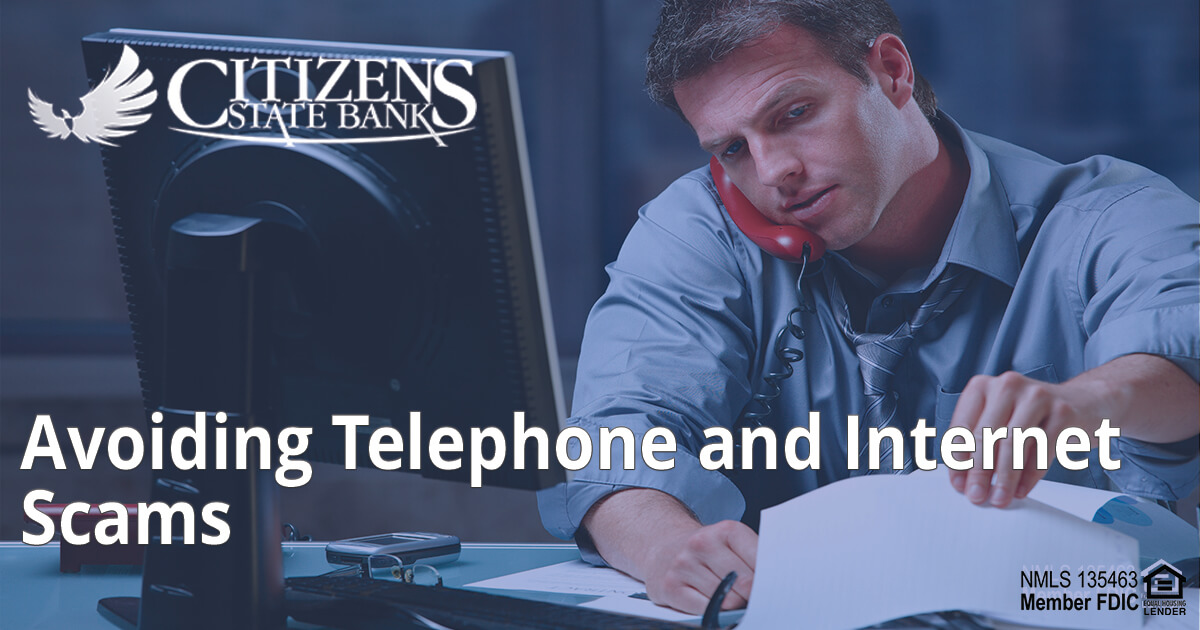
Older adults are increasingly the targets of scam artists on the telephone who use lies, deception, and fear tactics to convince them to send them money or provide personal account information. The Do-Not-Call registry may reduce calls from telemarketers representing legitimate businesses; however, it will not stop criminal telemarketers from calling.
Grandparent Scam
In this scenario, an imposter calls a grandparent pretending to be a grandchild in trouble. The scammer may even know the grandchild’s name. The scammer is usually crying making it hard to recognize the grandchild’s voice. They plead for the grandparent to wire money and not to tell any family members for fear of upsetting them. Many people will immediately jump to the assistance of the grandchild and won’t ask questions till later.
IRS Telephone Scam
In this scam, a scammer calls telling the consumer that he or she must immediately pay taxes that are owed. In some cases, the scammer targets immigrants who are told if they don’t pay the tax bill or otherwise follow instructions, they will face serious consequences, such as arrest and deportation, or the IRS could shut off their utilities, or revoke their driver’s licenses. Callers are frequently insulting or hostile to scare their potential victims. These scammers frequently:
You can report the suspected scam by going to Report Phishing and Online Scams.
Lottery and Sweepstakes Scam
Sweepstakes scammers call, email, or text consumers congratulations on winning a lottery, drawing, or sweepstakes, which the consumers usually have not even entered. The scammer ask the “winner” for an upfront payment to cover processing fees or taxes. In another variation, the scammer send a letter with an authentic looking, but phony, “Claim Certificate” or a “check” as an advance to pay the winnings. Bankers are generally aware of this scam and how to spot the phony checks. But if you deposit a phony check, the financial institution might hold you responsible for repayment of the entire amount of the fraudulent check even if you sent some of the money to the scammer.
Sweepstakes Recovery Scam
Once it is apparent that no winnings are forthcoming, the victim may receive another call from a person claiming to be an attorney representing sweepstakes winners. In exchange for an upfront fee, the so-called “attorney” offers to collect the winnings on behalf of the victim. Needless to say, the “attorney” is actually an associate of the original scammer and there is no chance of recovering the original loss or the fraudulent fee that the fake “attorney” charges.
Tips to Avoid Scams
Scammers can be very convincing. If something seems unusual check it out!
The views, information, or opinions expressed in this article are solely those of the author and do not necessarily represent the views of Citizens State Bank and its affiliates, and Citizens State Bank is not responsible for and does not verify the accuracy of any information contained in this article or items hyperlinked within. This is for informational purposes and is no way intended to provide legal advice.